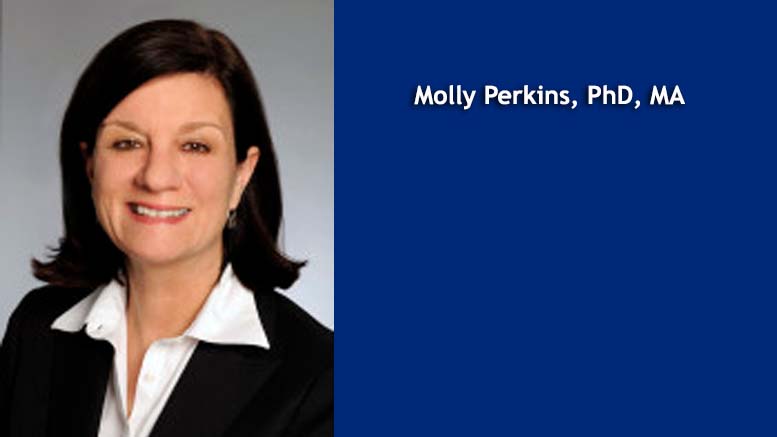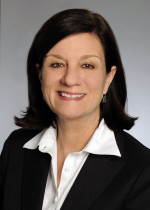Molly Perkins, PhD, MA has been thinking about how to take good care of older adults for a long time, and that’s a good thing. Perkins, a social gerontologist and medical sociologist who joined the Emory Division of General Medicine and Geriatrics in 2011, currently directs three federally funded projects, all revolving around social determinants of health and disparities, aging, and long-term care. In one study funded by the National Institutes of Health/National Institute on Aging (NIH/NIA), she’s leading a multidisciplinary team of social scientists and clinical researchers to address critical knowledge gaps and identify best practices for end-of-life and palliative care in assisted living facilities and in long-term care more generally. As our population ages and moves into these care communities, research like this means that more people will have access to high-quality care tailored to the final stages of life.
Dr. Perkins also leads two studies funded by the Emory Center for AIDS Research (CFAR). One focusing on veterans aging with HIV and the other, “HIV and Aging in the Deep South: A Focus on Social Determinants of Health,” focusing on the care needs of non-veterans. Both studies aim to identify the social determinants of health that shape patients’ care experiences, care planning, and access to community and social support. Again, it’s all about the best care for our aging population.
Dr. Perkins enjoys the ethnographic aspect of her research – getting out into the community and working with people face-to-face, building relationships over time. She majored in Fine Arts as an undergraduate at the University of Mississippi and still uses her creative skills as a nationally recognized expert in qualitative research: “Qualitative research is really an art because you have to be able to write well, to incorporate theory and see patterns in the data. I feel like I’m able to use some of my creativity and my artistic background and bring that into my research.”
Although these projects are on-going, Dr. Perkins has already drawn some important conclusions about improving health care for seniors. And if she could change one thing about our health care system, she would fast forward the current trend toward incorporating information related to social determinants of health into the medical record and encourage providers to ask more questions about patients’ social situations: “It influences compliance, medication use, and whether they are going to show up for an appointment. Especially with low-income seniors, it’s really important to know what’s going on with them socially. We need to look at the whole person, their home environment, their social situation, and not just their clinical situation.”
How has her research changed her? She has learned the importance of putting advance care planning in writing. “Don’t put it off,” she says, “and even though it’s hard to think about it and talk about it, go ahead and have those conversations.” She’s found that her older patients are actually very open to talking about death and what they want at the end of life. It seems to bring them peace of mind to know that things are settled. For Dr. Perkins, the most rewarding thing about working with older adults is hearing their life stories, because “there’s so much wisdom there.” When asked what she has learned from her senior patients, she says, “Like everyone, I struggle with work-life balance, but time goes very quickly and it’s so important to take time to enjoy life and spend time with people you love.”
More about Dr. Perkins:
Molly Perkins, PhD, MA is Assistant Professor in the Division of General Medicine and Geriatrics, Department of Medicine in the Emory University School of Medicine, Adjunct Assistant Professor in the Nell Hodgson School of Nursing and Affiliate Assistant Professor in the Department of Sociology; she is also Adjunct Assistant Professor at the Gerontology Institute at Georgia State University. She serves as Co-Chair of Emory’s Center for AIDS Research HIV and Aging Scientific Working Group and is Atlanta Site Director for Research for the Birmingham/Atlanta Veterans Affairs Geriatric Research, Education, and Clinical Center.
Related Links
- “One pill makes you larger, one pill makes you small”: Improving medical management in elderly veterans.
- Emory University Department of Medicine
- Emory University Division of General Medicine and Geriatrics
- Emory Center for AIDS research
- National Institutes of Health/National Institute on Aging (NIH/NIA)
*If you are interested in investing in research, clinical care, and education within the Emory University School of Medicine, Division of General Medicine and Geriatrics learn how you can help.


